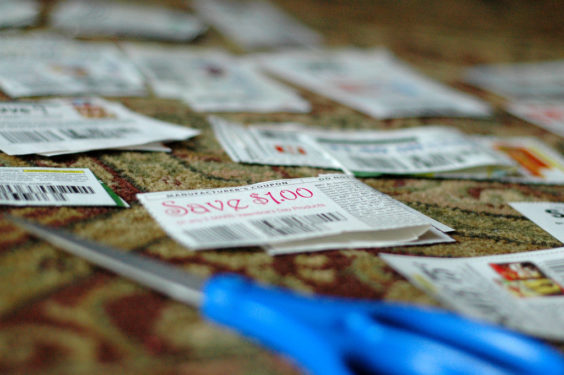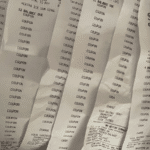Here’s a novel idea to help fight coupon fraud – instead of putting retailers at risk of accepting misredeemed coupons, a new proposal would have you scan your own coupons at home, after you’ve already paid for the products.
Really?
It sounds more like a rebate than a coupon. But a California company says it could turn coupon fraud into a thing of the past.
The idea is part of a recently-filed patent application by the retail marketing company Aintu. “System and Method for Dynamic Personalization of Electronic Coupon Distribution And Redemption Via Mobile Device” is a mouthful. But once you get past the title, the description contains some provocative ideas.
One would allow manufacturers to take a peek at your shopping list and provide you with coupons. The patent application describes a list-making app that would offer you personalized digital coupons based on what you’re planning to buy.
But the real standout is how the inventors plan to combat coupon fraud.
“Coupons are encoded in a special code or mark that is printed on product packaging,” the application reads. “Preferably, the code is located on the inside of the packaging and thus is inaccessible, save for opening the packaging… The idea is that once a product is purchased, the redemption of the coupon takes place at the home of the customer.”
So you would buy a product at full price, then take it home, open it up, and use your app to scan a coupon code inside. Then you’d get credit to your account, or a cash rebate. The app would even use location tracking to ensure that you’re actually home, and not tearing open packages in the store to get at the coupons inside. “Because this embodiment places the responsibility of reporting coupon redemptions in the hands of the customer, the possibility of coupon redemption fraud is reduced,” the application reads.
That may be true. But is it really the best way to reduce coupon fraud? It’s unorthodox, for sure. But what the patent proposes is actually not entirely unprecedented.
Rebate apps like Ibotta and Checkout 51 already require you to purchase a product first, and get cash back after you get home and scan your product bar codes and receipt. So getting a post-purchase rebate instead of an immediate discount when checking out is not an unfamiliar experience for many couponers. And members of manufacturer loyalty programs like My Coke Rewards and Kellogg’s Family Rewards already have experience opening up packages looking for codes printed inside, that can be redeemed for points and perks.
But Kellogg’s program eventually did away with printed codes in favor of receipt scanning. And Coca-Cola announced earlier this year that it is retiring My Coke Rewards for an as-yet unspecified replacement rewards program.
So the concept of replacing coupons with post-purchase rebates may not be completely off the wall. But forcing you to tear apart product packaging looking for codes that you can scan for a discount is something that at least a couple of major manufacturers are already moving away from. Not to mention the fact that it’s a lot more cumbersome and time-consuming for consumers, as compared to simply handing over a piece of paper for your cashier to scan.
Besides, would manufacturers really be willing to start printing codes inside their packages, and stop issuing traditional coupons altogether? It won’t be easy getting everyone on board with that. But if it means they’ll no longer be scammed by coupon abusers who use coupons on the wrong products, the idea might not be as far-fetched as it initially seems.
In the end, it’s just a patent application, and not every patent proposal becomes a reality. If stopping coupon fraud will require the elimination of coupons as we know them, some retailers may not have a problem with that. But fans of good old-fashioned couponing may hope this is an idea that stays on the drawing board.
















